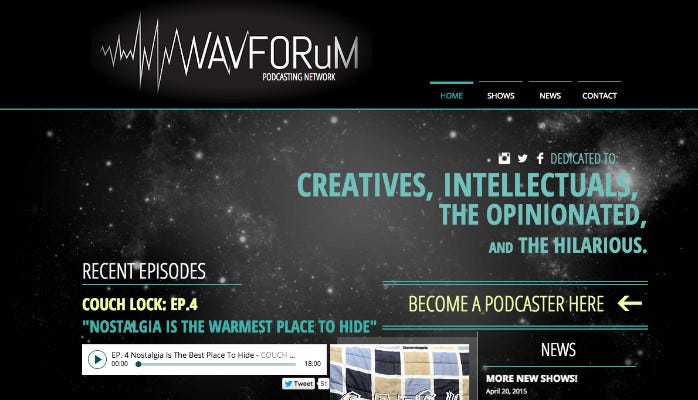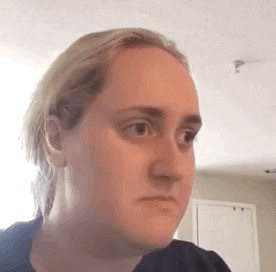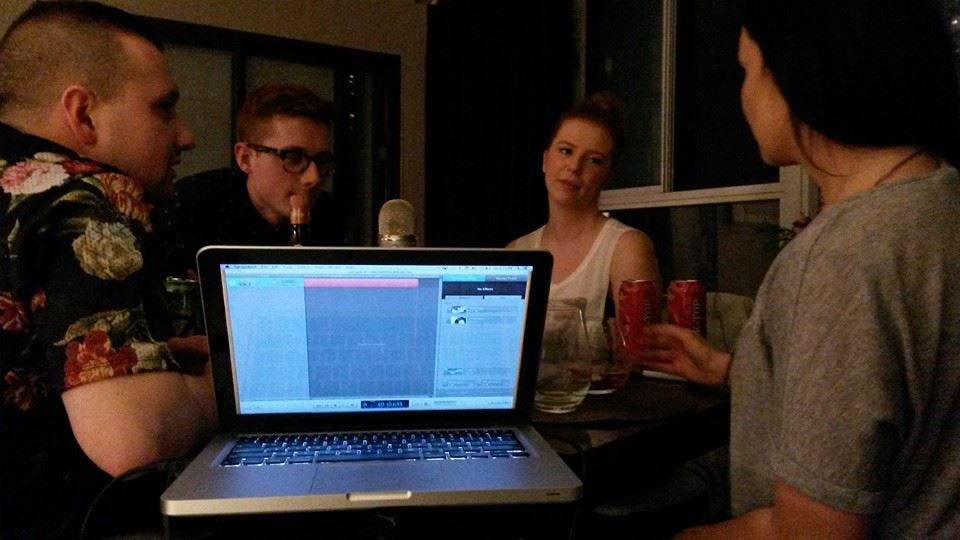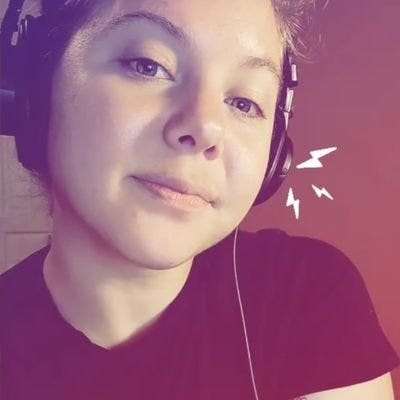The ongoing history of Canadian podcasts
Vol. 17 - A biased history, veteran podcaster Vern Hume, Canadian Podcast News Buffet and... Kombucha?
Hihi!! Happy Pod the North Tuesday! I spent the weekend in Toronto seeing Bikini Kill with my mom, cuddling dogs, sipping sci-fi themed cocktails at Offworld bar, and polishing off a Gelato + Wine pairing flight at On Third Thought. Whenever I feel guilty about spending too much money I just tell myself, “I’m supporting local”.
134 days until Nova Scotia!
In this issue:
A biased history of Canadian podcasting.
Veteran podcaster, Vern Hume, is rooting for the niche.
Canadian Indie: The Latin Jukebox
True North Podcast: Chris Waite's Anishnaabe History Podcast
New Canadian shows, awards, and Hot Docs Podcast Festival
ICYMI: There are still 32 long-term drinking water advisories in effect in 28 First Nations communities across Canada.
My journey into podcasting started like most indie podcasters; with a Blue Yeti microphone and some gumption.
That was almost 10 years ago.
Comparing the North American podcasting landscape in 2014 to today is honestly, pretty crazy to think about. At that time, I’d just graduated from the RTA School of Media at Toronto Metropolitan University and wrapped up an incredible 6-week internship at CBC Music and Radio 2. My sights were set on a career in radio.
There was a lot of experimenting happening when it came to digital content then. At my internship, we were creating music playlists that people could stream from the CBC Music website. “Listen Again”s — downloadable recordings of CBC radio programs hosted on CBC’s website — were in the midst of being phased out. Facebook pages were a thing.
But I’ll never forget the day in October 2014 that one CBC staffer told me when I asked her if CBC would ever consider podcasting, that “nobody listens to podcasts”. The very next year, CBC would launch CBC Podcasts and just three years later, Frequency Podcast Network and Curiouscast would be launched from two of Canada’s major telecom companies; Rogers and Shaw respectively.
In 2015, while working at a hair salon still with no radio career, I started to worry that I was losing my sense of the industry and audio production skills, and I decided to start my own podcast network. It was called the WAVFORuM Podcast Network, a name that I shamelessly think is still pretty badass.
And so I made my first podcasting investments; the Blue Yeti microphone and the wavforum [dot] com domain. My skills were mainly in audio production and I had basically no budget, so other than the mic and domain I did things as cheap or free as I could.
Publishing a podcast onto the internet was a mystery to me, and I couldn’t really find much info about it out there other than this thing called an RSS feed. Actually, my partner just reminded me about the giant “Coding for Dummies” book that I bought when I thought I’d have to learn how to code in order to set up an RSS feed on my website, which was a fruitless endeavor. I’m a creative gal, not a coding gal.
Instead, the WAVFORuM Podcasting Network was hosted on a free Wix website for almost 2 years with about half a dozen different shows, each with their own landing page and each podcast episode embedded onto it. It included a show I created called Theories Likely Tequilya, a drunk philosophy show; a movie review podcast hosted by my partner, Mark, and his friend Scott; and the very first episodes of Killed To Death, the improvized true crime podcast hosted by Griffin Toplitsky and Steve Cooke which has long since been a part of the Sonar Network and hosted countless incredible Toronto comedians, like the late, Nick Nemeroff.

For good measure, I also uploaded podcast episodes to Soundcloud.
If you’re doing the math here, you’re probably realizing that the experience I fully anticipated for podcast listeners was that they’d listen to or download episodes directly from the WAVFORuM website or from the Soundcloud feed, and maybe upload them to their iPod Classics.
But let’s go back even further for a sec.
Around 2004, podcasting in Canada started as an independent DIY space, held down by podcasting pioneers like Bob Goyeteche, Mark Blevis and Anthony Marco.
In 2005, Bob and Mark’s Canadian Podcast Buffet, a podcast highlighting other Canadian indie podcasts and called “the heart & soul of Canadian podcasting” by audiobook domain LibriVox, was probably the earliest interation of a thriving, independent Canadian podcasting landscape. Today, while archives of Canadian Podcast Buffet are pretty difficult to find, you can usually find Mark, Anthony, and many other Canadian podcasting veterans floating around Canadian indie podcast spaces like Podcamp Toronto.
In 2013, the first CANADALAND podcast was launched by Jesse Brown, which was for a lot of podcasting millenials like me, a foundational part in our interest and understanding of podcasting in Canada.
I think if I were to tell 21-year-old me about the trajectory of podcasting, her reaction would equate to something along the lines of the Kombucha Girl meme (see below if you’re unfamilar).
Remote podcasting and distribution is easier than ever thanks to RSS feed hosts and remote recording platforms. Podcast listening is at an all time high. That’s the Ginger-Lemon Kombucha of podcasting.
But the inequities for independent podcasting over time have also become pretty dire. Discovery and oversaturation, lack of financial support, and mass consolidation? That’s Yeasty Kombucha of podcasting.
What do podcast industry veterans think is ahead for the next podcasting era?
More below.
P.S. If you sign up for a paid subscription to Pod The North or send me a tip through Buy Me a Coffee, I’ll email you an archived episode of Theories Likely Tequilya from the depths of my first ever external hardrive!
Thoughts from the ecosystem:
Veteran podcaster, Vern Hume, is rooting for the niche.
When Alberta-based veteran podcaster, Vern Hume, reached out to tell me that he’d been podcasting since 2008, I had a million questions for him.
His indie podcast, Makeshift Stories, an original Science Fiction & Fantasy storytelling podcast, has been running and iterating for 14 years. It’s seen the 2005-2014 DIY era, the 2015-2020 podcast boom, and now the 2021+ pandemic-fueled, oversaturated podcast market.
I asked him about what it was to start a podcast in 2008 (which included a perfectly Canadian trip to Long & McQuade), what’s top of mind for him now as an indepedent podcaster, and given his years of insights, what he anticipates for the future of Canadian podcasting.
Here’s our chat:
This interview has been edited and condensed for brevity.
KL: How did you get into podcasting in the first place in 2008?
VH: This is a funny story. I had wanted to do a podcast since I heard the first one in 2005. It just took me three years to find the time.
If you think about it, [podcasts] have gone the same route as any new media or medium, right? It's gone from being an outlier and something that early adopters and people who are more subculture get into, and it's moved into the mainstream.
I've always been a supporter of small independent media production, and [podcasting] was the first time the potential to reach an audience, be it niche or a distributed audience around the world, was there right from the beginning. And it was relatively easy to set up, so it took away a lot of barriers for small producers, particularly if you focused in audio.
I'd always had an idea for [a podcast]. At the time I was trying to get my son interested in reading and literature and we used to listen to a lot of old radio dramas –and this is pre 2000, so at that point you had to dig around. There was a couple of sites out there with old radio shows and I would have to dig through archives and download the stuff and then stick it on a CD and play it at night for him.
At the same time, I was also really into RSS news readers, and of course the two came together in podcasting, right?
And finally for me, I was looking for a creative outlet that I could do and fit around everything else I was doing at the time. That's kinda where it started.
KL: How were you hosting your podcast – how were people accessing episodes and listening to them in 2008?
VH: I had a WordPress site and I was using Feed Burner. When Apple started listing them in iTunes, I submitted it to iTunes. That's how it got indexed.
There were still some early [RSS] suppliers, like Libsyn and Bluberry. I eventually moved over to Bluberry.
Feed burner obfuscated the actual URL of your podcast, so your podcast was basically “feed burner slash whatever your podcast is slash whatever”, right? I realized that that wasn't very good. When I moved across [to Bluberry], it was about four years into the podcast, most of the audience followed.
KL: So I would say the Canadian boom in podcasting really came around 2015, that's when CBC Podcasts was launched and then Frequency Podcast network a few years later. At that time, what were your thoughts as an indie podcaster?
VH: So here's the thing, Makeshift Stories is really tiny. It's me, occasionally my son, and the narrator. I am the editor, the producer and the writer. So doing the podcast part-time, I didn't pay tons of attention to it.
I'll put it this way; if you started a blog in the late nineties, you probably had a chance of being found. If you started a blog today, shrug.
The web went that way. Podcasting as a branch of that whole technology step has gone the same way. And as soon as the larger players came in, it started bringing things full circle.
Before podcasting, before the web, how did you distribute independent content? Through a CinemaTech or a media arts organization, and you'd be mailing tapes. The web was really interesting because it provided access to potentially connect with audiences.
And the more things have become commercialized, the harder it is for a small person to do that. Some people still break through, right? But for all the smaller, more niche podcasts, even if you have an audience or a potential audience for your work, them finding you by accident is highly unlikely now.
KL: Let's talk about pandemic era, because once 2020 hit and everybody was home, everyone and their mom was making a podcast. Since then podcasting has become a lot more accessible and I'm just curious about the tools that were accessible when you first started your podcast versus the tools that are accessible now.
VH: Well, I think there's a lot more information around. When I started there wasn't as much. I went to Long & McQuade to find equipment. And in hindsight, they did the best they could. They gave me some home studio stuff, but it really wasn't the right kind.
I think there is a larger wealth of information and advice, and originally it was kind of trial and error. There was information out there, but it was a little harder to find.
At the same time I was focused on the creation of the content. Maybe not so much on the technology. I think one of the big things that has changed is just the introduction of services that clean audio. I think now there’s more AI cleaning up audio, so it's making it easier.
KL: So what are your general thoughts on the podcasting space now?
VH: It'll be interesting to see what happens. I know everyone piled in and probably there's way too much investment and too high of expectations.
I guess it's gonna depend on ad revenue for the major networks and whether or not they're going to be able to make the money they think they were going to. It's like everyone got over enthusiastic, right? And being in over the long run, it goes up and down.
I think 2012, 2013, the audience was actually shrinking for podcasts. There were people at that point in time saying podcasting is over. It never really bothered me because what Makeshift Stories is doing is just looking for an audience that's interested in their content. It's not a commercial podcast, so of course our motivations are are very different.
KL: One of the big peeves of mine where I see the future of podcasting really being talked about is around this idea of a blockbuster podcast. And really, it seems like podcasting successfully is gonna really end up in niches. What are your thoughts on that?
VH: Well, I would hope it would end up in niches again. I'm rooting for the niche. I think the sad thing is though, is that’s part of the reason why discoverability is problematic. There's two reasons for that. One is, the large media entities that want the blockbusters. The other one is the amount of noise – what is there like 4 million podcasts out there?
Makeshift Stories was fortunate enough to have been started when the whole scene was small enough to be found, which is also so unfortunate because I'd say that's the weakest material. It would've been great to start with the material we have now, 14 years ago.
KL: Is there anything particularly exciting about the future of podcasting for you that you're excited to see happening?
VH: Um…
KL: *He says with a long pause.*
VH: What would be great is to see some of the bigger players leave. I think podcasting was really built by the small, independents and the big media organizations piled in at the end.
If there's not enough money in it for them, then leave. It'll make it easier for the rest of us.
What Vern is listening to:
Check out this Canadian Indie: The Latin Jukebox
Conversations about Latin influence in the music scene.
True North Podcast: Chris Waite's Anishnaabe History Podcast
History about Ojibwe and Cree people.
What’s going on in Canada’s podcasting ecosystem:
Will di Novi from Hot Docs Podcast Festival chatted with Samantha Hodder over on
. Give their interview a read to learn more about why Hot Docs is doubling down on podcasts, what to expect from their spring showcase and Creator Forum, and way more!PLUS, Hot Docs is offering discounted Podcast Creators Passes to subscribers of Pod the North for the upcoming Spring Podcast Showcase in May. They also gave me some codes to share for 20% off a few of the live shows happening from May 4-May 6: Radiolab (HD23RADIO20), A Night with CBC Podcasts (HD23STORY20) and Kara Swisher (HD23KARA20). Thank you Hot Docs team!
The Sonar Network has a new show! How Can We Help? is a new podcast from comedians Jackie Pirico and Mark Little who share perfect, unimpeachable ideas on how to improve your life. Check it out!
CBC Podcasts has FIVE shows in the running for a Webby Award this year. Congratulations to the super talented teams behind Boys Like Me, Let’s Make a Sci-Fi, Sorry about the Kid, Pressure Cooker, and The Outlaw Ocean. BRING HOME THE WIN!
writer and Tink Media’s resident Canadian, Devin Andrade, was on the podcast talking about The Art of Podcast Marketing. Listen here!Are you a podcasting academic who would love to be a part of a network? You have until April 30th to submit your show to be a part of the Amplify Podcast network on their Sustain stream. This is the first open call for podcasts by academics committed to critical pedagogy and open scholarship. Find more info here.
Congratulations also goes out to 640 Toronto’s new podcast Today in TO, from Curiouscast. The podcast comes complete with a matching beer, in partnership with Great Lakes Brewery — the place the team went to for drinks during development and where they hosted a super fun launch party in early April.
For your pod:
The Quill Podcast Awards are back! This annual digital awards ceremony celebrates the achievements of podcasters and podcast companies across a ton of sectors and categories! Check out their nomination form now, and don’t forget to nominate yourself. Nominations/voting closes on April 24th, so you have one week left!
The Signal Awards are back! There are SO MANY categories to browse through that are worth at least considering. Entries fees are $200+ and open until May 12, 2023. Get more info on the awards here.
How to keep podcast guests happy. BLK Podcast Collective has shared some wonderful insights about making sure your guests have a smooth experience on your show! The better the experience, the more likely they are to share the episode! Read it here
Curate a list for EarBuds Podcast Collective (free). Pick a theme and find five podcast episodes (including your own) for
’s popular podcast discovery newsletter. More details here. Paid opportunities also available.
Just Joe (ready for summer)…
If you have thoughts or questions about this newsletter, please share them with me! Leave a comment or reply to the newsletter email. If you’re feeling generous you can also monetarily support me on a monthly basis through Substack, or buy me a coffee!
Thanks for supporting Pod the North, I’ll be back in your inbox in two weeks!
Kattie | @Podkatt
(Find me on Twitter, Post, Spotify, and Goodpods)








